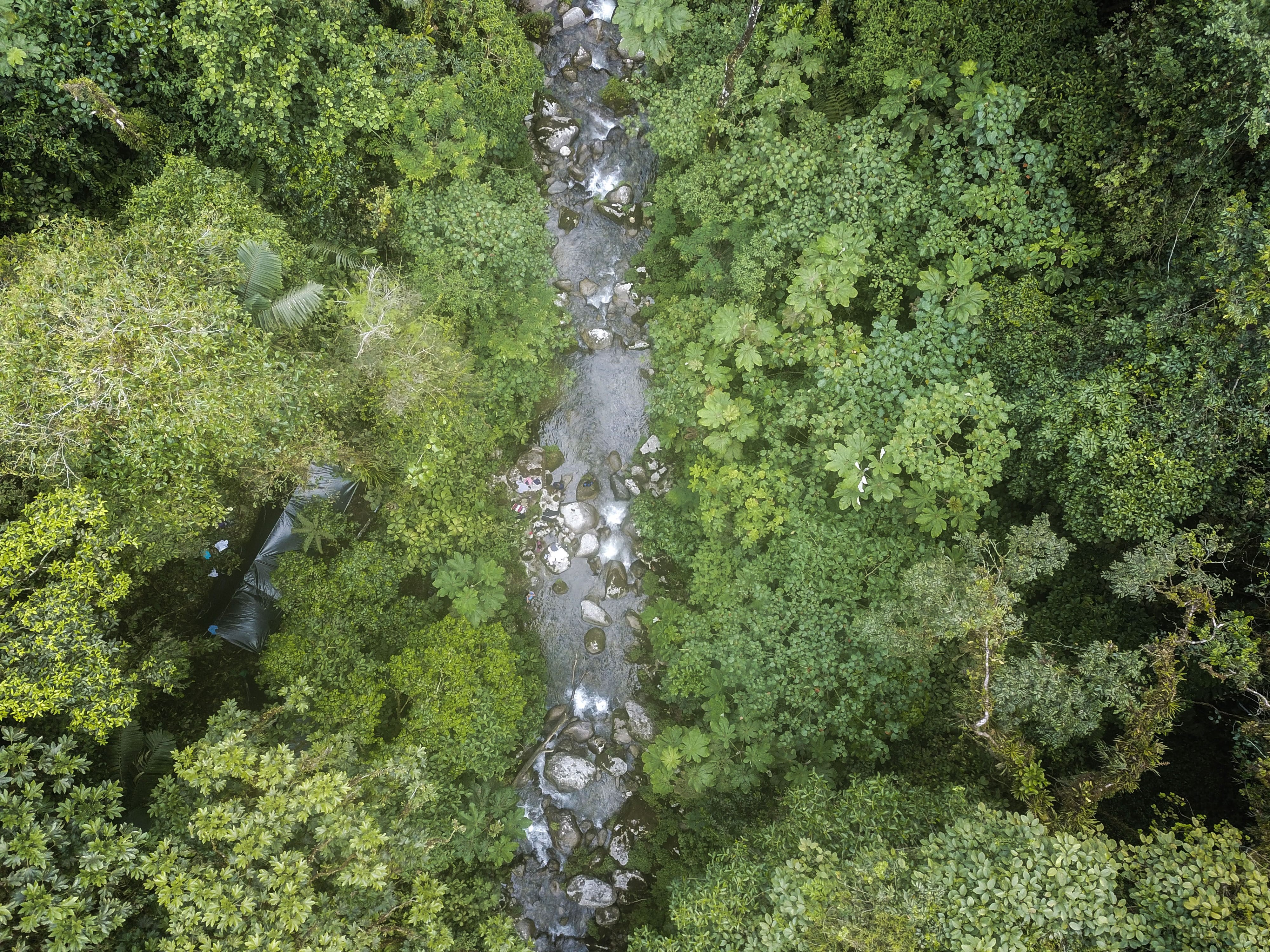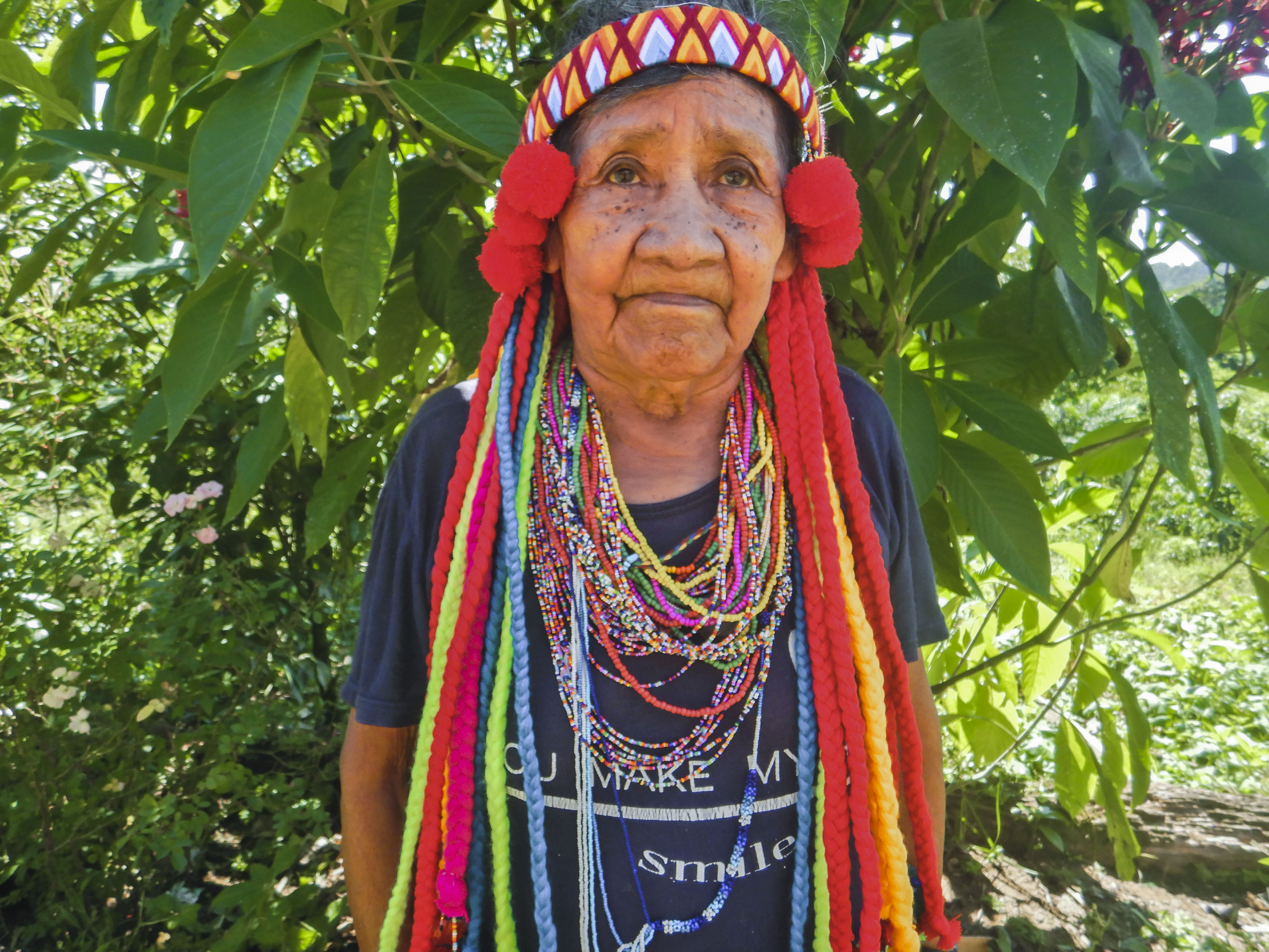Nukanchipa Alpamama: Territorio de vida del Cabildo indígena de la Comunidad Inga Musuiuiai, Colombia
Our history
The inhabitants of the Musuiuiai community belong to the Inga people of Colombia, with a long history of mobility and dispersal and a well-deserved reputation as traditional medical experts and connoisseurs of medicinal plants. Like the other indigenous peoples of southwestern Colombia, we have faced colonization and evangelization, pressure for land property rights, overexploitation of the resources of our territories, displacement and illegal groups, and many others. threats that have fragmented our people and threatened their physical and cultural survival. We, in the Musuiuiai community, have also lived a history of territorial loss, with obvious consequences for our culture and survival.
Musuiuiai is a recent settlement, established after the displacement of families in 1993 from San Miguel de la Castellana, the territory that we had occupied for centuries as an indigenous people. This territory was indicated to us by the spiritual call of our elders through our sacred plant. Currently, the community is made up of 18 families with a total of 49 people. We take care of a sacred territory of 18,248 hectares that we recognize with the name of Nukanchipa Alpamama, which means 'Our Mother Earth'. Since 2005 we have worked hard to secure the territory and consolidate our own government through the definition of boundaries, the management and installation of the school, the recognition of the council and the construction of the council house. We have also negotiated with government agencies the protection of ancestral possession of the territory and the legalization of the collective title as a safeguard; however, we have not yet achieved a positive response.

Self government
We are governed by our own government made up of political, territorial and spiritual authorities that are inspired by the law of origin and the special Colombian indigenous legislation. We have three types of authorities:
- Spiritual Authority: made up of the elders and followers of traditional medicine. Its function is to give advice, harmonize and correct mistakes when people deviate from the right path.
- Political Authority: formed by the council, which is a public entity of a special nature. The council authorities are elected by the community to legally represent it, exercise authority and carry out the activities attributed to them by the laws, our uses and customs and our internal regulations.
- Territorial Authority: it is exercised by the group of alpamamata michadur (defenders of the territory) that is led by a president, a coordinator of the guard and a delegate of the guard. This group is made up of people from the community who volunteer to tour and monitor the territory, register new species and guarantee compliance with the "Internal Regulations" and the "Mandate for the traditional use and management of the territory."
.jpg)
Our Territory
We are located in the Amazon foothills, Putumayo department, between the municipalities of Orito and Villa Garzón. We have a wide territory with hills that go up to the edge of the Eastern mountain range. There are streams, rivers, water sources, waterfalls, salt marshes and mountain ranges. We have the three thermal floors: warm, temperate and cold. On each floor there are a great variety of animal species, including birds such as torrent ducks, cock-of-the-rock, macaws, black paujil, and mammals such as black bear, spectacled bear, anthill, jaguar, mountain lion or puma, tapir, cerrillo, venison and many more that we want to inventory. There is also a great variety of plant species, in particular, we recognize and use many medicinal and timber plants. The community uses the resources for subsistence in accordance with traditional knowledge and practices. This includes the rules for hunting, fishing, farming, and gathering resources for the making of musical instruments, ritual instruments, and work utensils. There are also rules on the use of sacred plants in our rituals and medicinal plants for the prevention and treatment of diseases, since we have experts who are knowledgeable in traditional medical botany.

Our culture
We belong to the Inga people and we keep our native language and dress. We have traditional meals prepared with our own food that we grow in our chagras (open area in the jungle to plant crops). For us, the entire territory is sacred; in it there are special places where the spirits of nature and the ancestral spirits that are the owners of plants and animals live. The ancestral spirits are the grandparents who have become animals such as the tiger, trees, stones and birds such as bluebirds and eagles. The territory is like a university where lessons for life are learned, and the teachers are the knowers and the spirit of the ambiwasca (our sacred plant, also known as ‘yagé’). The territory is also important for Musuiuiai because of the sources of water and oxygen, which we take care of for the new generations and the whole world.
Threats and challenges
This territory is ours from the beginning. Colonization and development have usurped our territory and cornered us. Despite national laws for the protection of indigenous territories and their titling, the respective agencies have denied the collective title as a safeguard, which would guarantee us security of tenure. The violence and social insecurity in the region generate pressure from people from other places who seek to settle in the territory. For this reason, we need to know the national and international laws and even the special Colombian indigenous legislation to vindicate our rights and fully guarantee our own government and our forms of internal organization. We also recognize the importance of mastering new technologies to confront society, understand each other with the State, make ourselves known locally, nationally and internationally, and seek support and protection.
More information
The Amazonia, un territorio de vida website showcases the efforts of Indigenous organizations in the Colombian Amazon working to strengthen territories of life, preserve ancestral knowledge, and ensure well-being for present and future generations.
To learn more about Musuiuiai, visit the following link: Musuiuiai – Territorio de Vida
This case study was originally published by UNEP-WCMC in September 2021. The content was provided by the custodians of this ICCA. The ICCA has been self-declared and has been through a peer-review process to verify its status. More details on this process can be found here. The contents of this website do not necessarily reflect the views or policies of UN Environment Programme or WCMC.